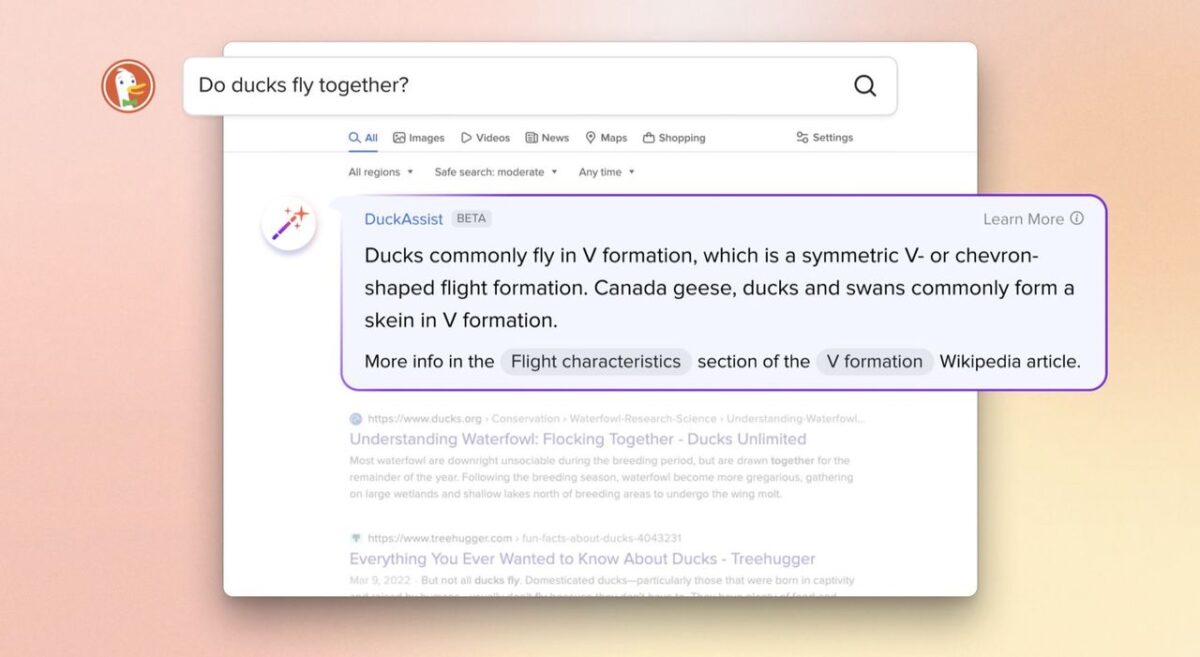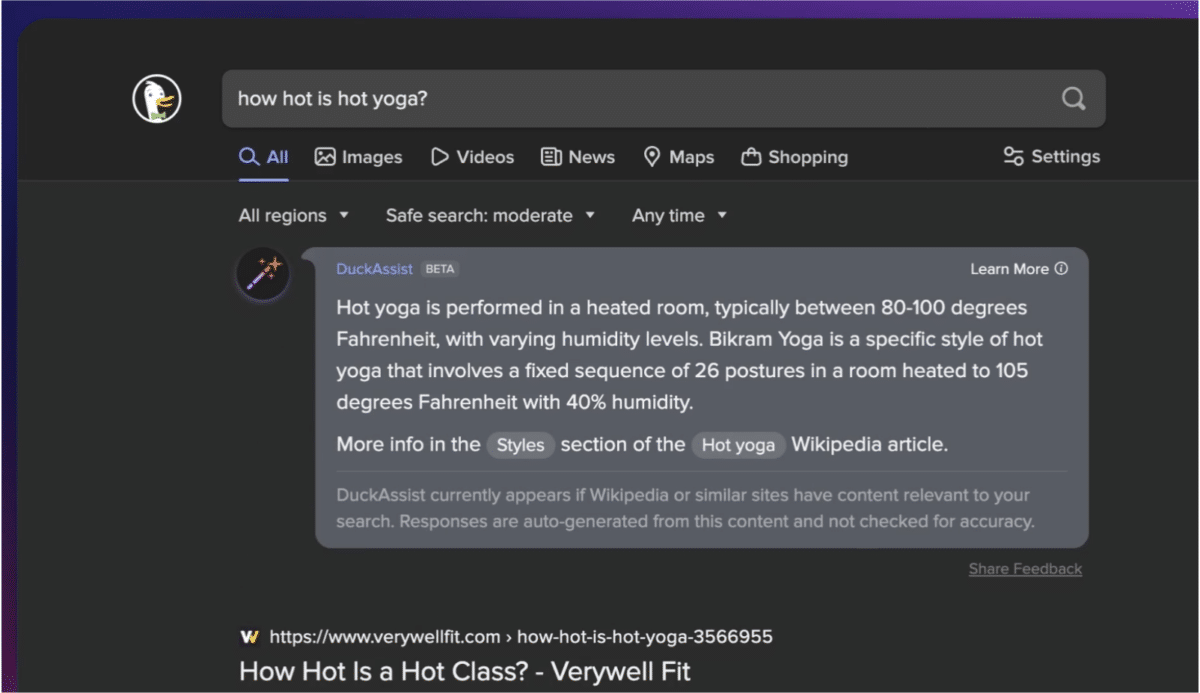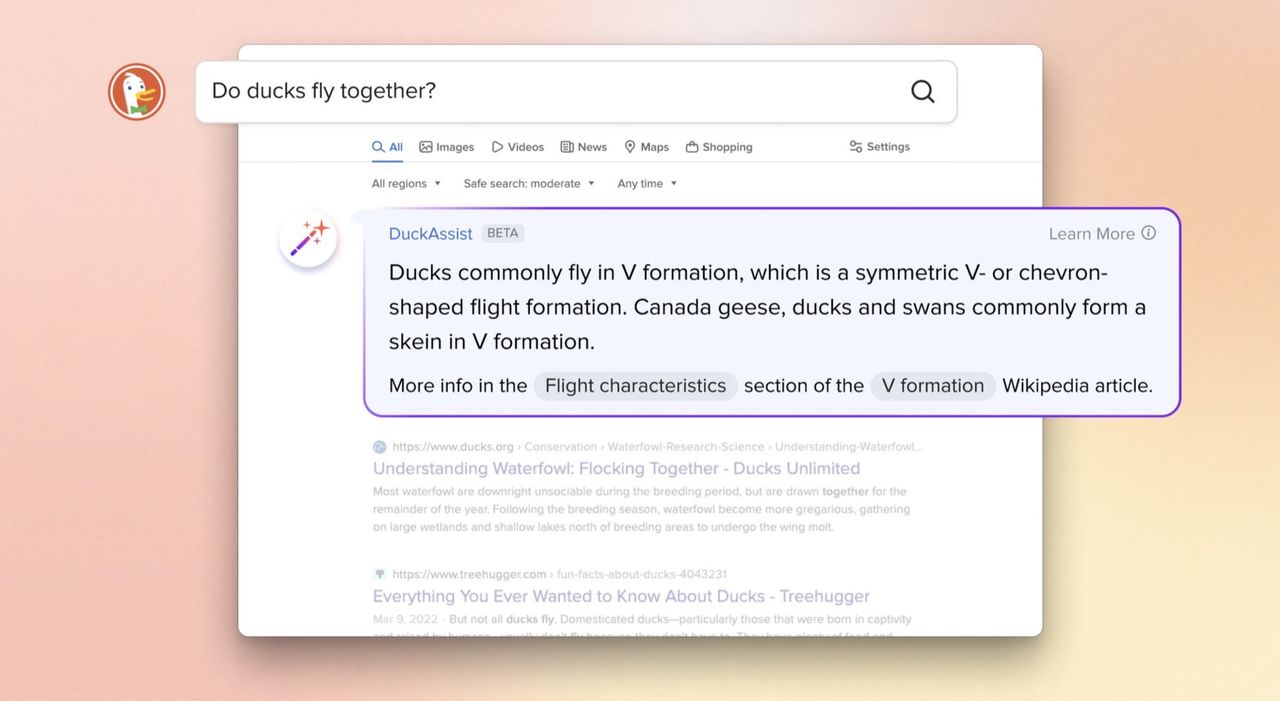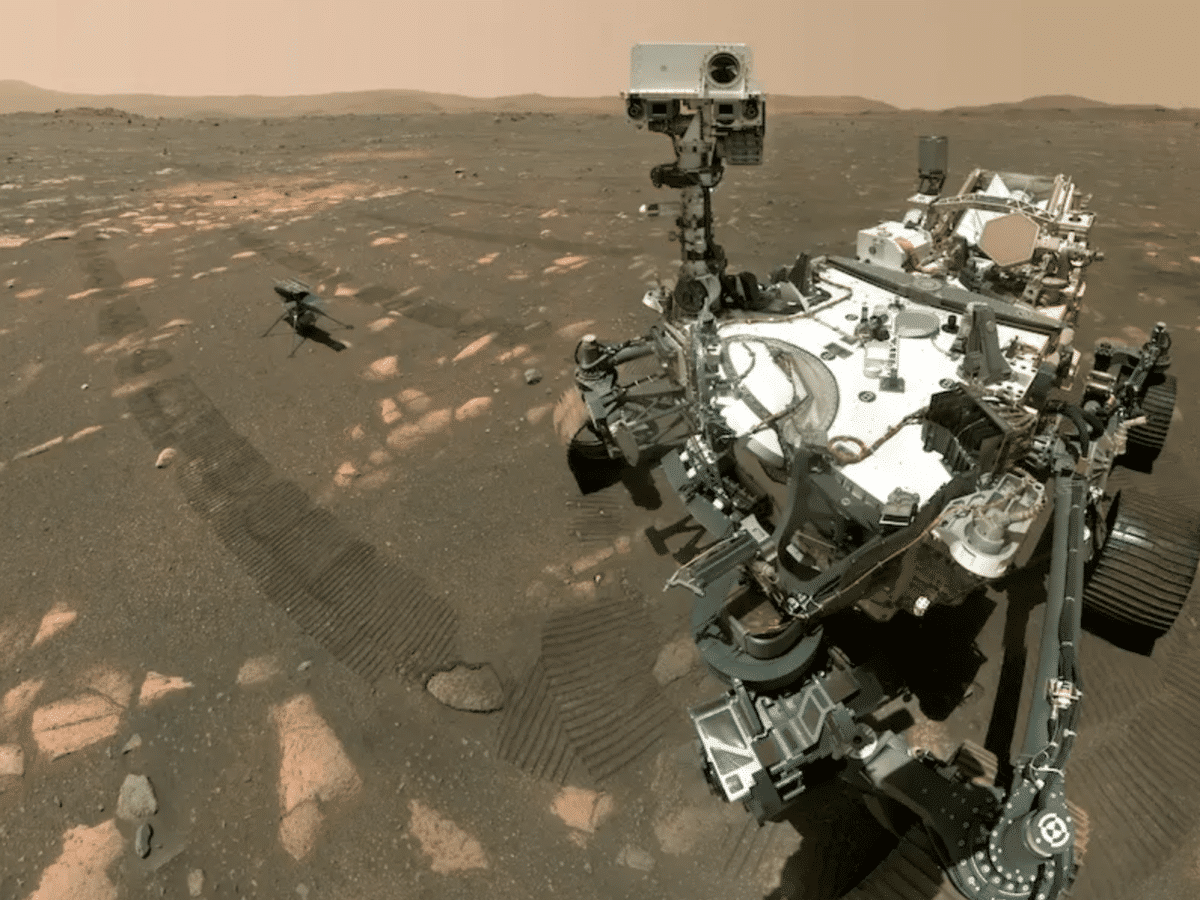After both Microsoft and Google have demonstrated and released generative AI features for their search engines, the privacy-focused search engine DuckDuckGo now presents “DuckAssist”, a collaboration with OpenAI. The tool uses data from sources including Wikipedia to provide users with a natural language answer to certain questions asked.

DuckDuckGo has decided to limit the sources from which the machine learning model can retrieve data in order to minimize “hallucinations” – that is, answering with incorrect information. But if a magic wand icon appears during a search, it means that DuckAssist can summarize information for you.

Currently, the feature will only be visible in DuckDuckGo’s app or browser extension. The company says it wants to gather feedback before expanding availability in the coming weeks and allowing DuckAssist’s model to access additional sources. DuckDuckGo also notes that no login is required to use DuckAssist, and the company will not share any users’ personal information with OpenAI or the other partner, Anthropic.
DuckAssist is anonymous, with no logging in required. It’s a fully integrated part of DuckDuckGo Private Search, which is also free and anonymous. We don’t save or share your search or browsing history when you search on DuckDuckGo or use our browsing apps or browser extensions, and searches with DuckAssist are no exception. We also keep your search and browsing history anonymous to our search content partners — in this case, OpenAI and Anthropic, used for summarizing the Wikipedia sentences we identify. As with all other third parties we work with, we do not share any personally identifiable information like your IP address. Additionally, our anonymous queries will not be used to train their AI models. And anything you share via the anonymous feedback link goes to us and us alone.







